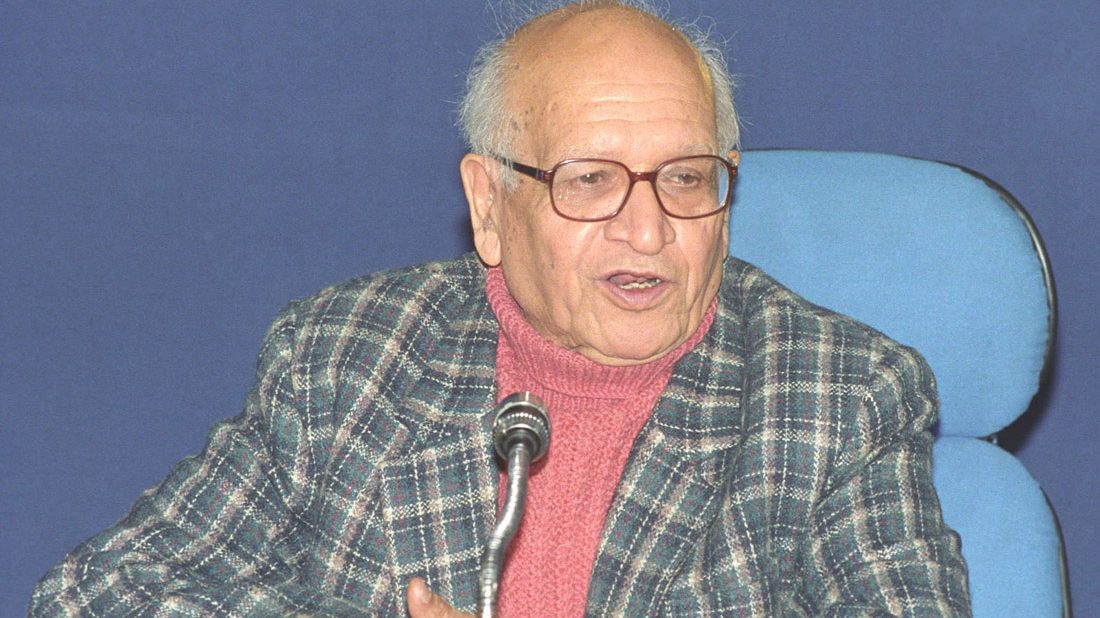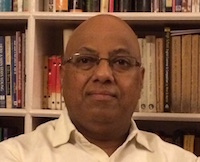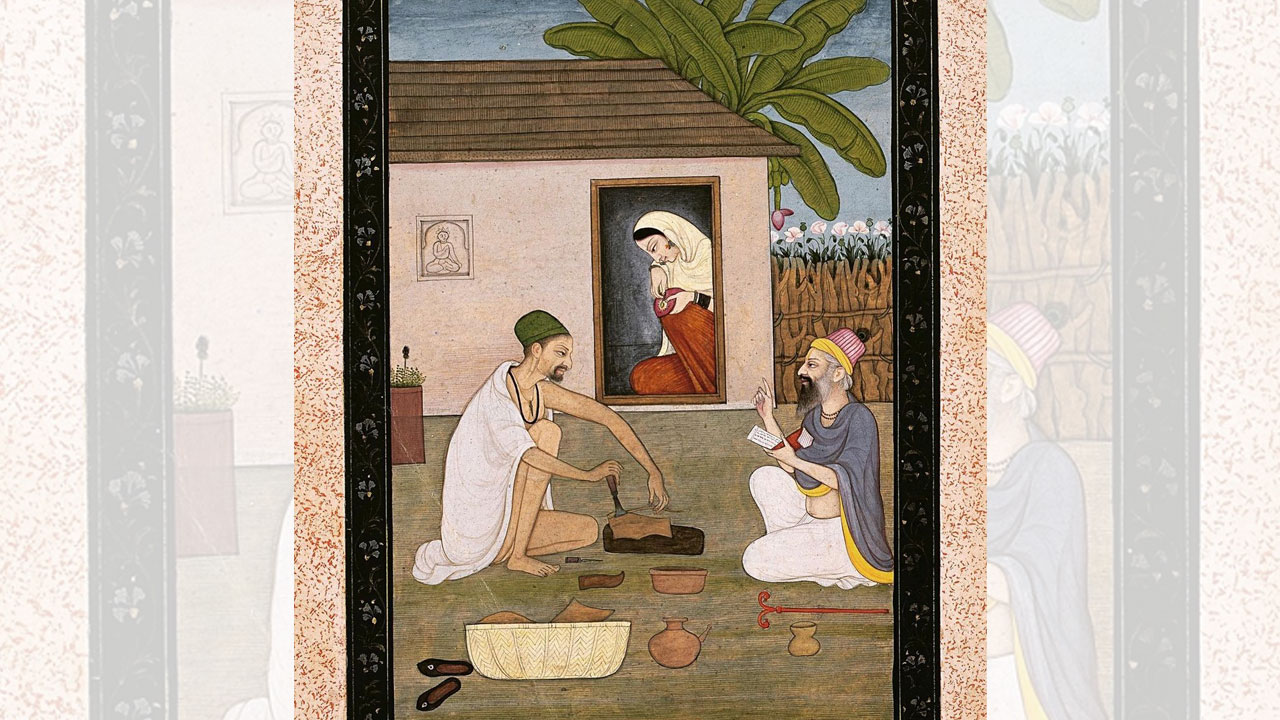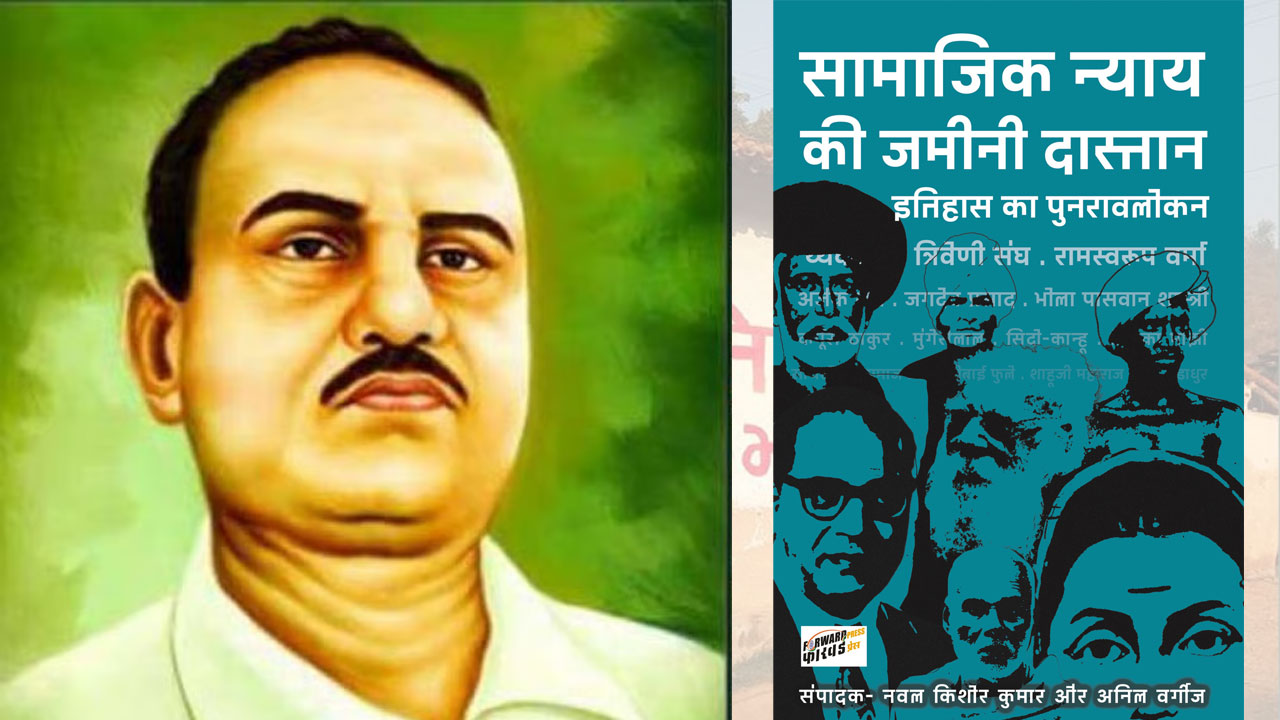In the early 1980s the towering personalities of Romila Thapar and Bipan Chandra were associated not only with the influence of Marxism on Indian history writing but with all that was supposed to be good about the craft of modern Indian history writing: the scientific temper, possible objectivity, intellectual rigour, secularism, ideological honesty and the emphasis on economic and social history.

The troika of Romila Thapar (Ancient India), Irfan Habib (Medieval India) and Bipan Chandra (Modern India) ruled the minds of those budding historians across the country who wanted to end up in the sanctum sanctorum of Indian Marxism – the Jawaharlal Nehru University’s Centre for Historical Studies (CHS). In those days we had not heard of, or were not told about, deconstruction or postmodernism. Indian historians did not take texts like the Pedagogy of the Oppressed or De-schooling Society seriously. They also did not pay adequate attention to the works of Ambedkar or Periyar. The Subaltern Studies project was yet to be launched and Feminist and Dalitbahujan history writing were eking out a living at the margins of the main text of Indian historiography. There were other great historians in India as well but the foremost names, popularized by the contemporary textbooks of those days, were the ones mentioned above.

This short essay is about Bipan Chandra, who passed away in Gurgaon on 30 August at the age of 86. It has been written by a modest Indian historian who was Chandra’s student but never became his ardent follower unlike many of his classmates at JNU.
Professor par excellence
As a teacher Bipan Chandra was impressive to say the least. Physically he was not imposing but packed a large punch for his below-average frame. His personality exuded energy and confidence, and his voice rang loud and clear as he taught his class. Having spent his formative years in the Punjab — and he certainly gave the appearance of being a hill man from Kangra — he spoke English with a typical heavy Punjabi accent and he often spoke in a good mix of Hindi and English with the students and faculty. He was a much-admired professor and it was evident from his takes on issues like the role of generalization and theory in history writing that history to him was a passion above anything else. He was certainly a scholar who was totally convinced of his own views and was forever ready for a bout of intellectual sparring.
‘Left-leaning secular historian’
Bipan Chandra began his academic career as a scholar of Indian economic nationalism and ended up becoming almost an apologist of the Indian National Congress. Therefore the appellation ‘left-leaning secular historian’ would suit him better than ‘Marxist’, with Marxism having entered its post-Stalinist phase in the 1970s if not earlier. At best he can be described as a social democrat who took it upon himself to defend the Nehruvian Indian state against its right- and left-wing enemies. His critics accused him, not without justification, of promoting a Congress-centric understanding of the multidimensional Indian anti-imperialist movement. He was particularly enamored of Gandhi and Nehru and never forgot to refer to the former as Gandhiji in his lectures. The critics of the Congress, like Ambedkar or Jinnah for instance, did not merit the same respect in his reading of Indian history as did the prominent members of the Congress Working Committee.
By the mid-1980s he began to use the terms coined by the Italian communist Antonio Gramsci to justify and explain the Congress-led Indian freedom movement, which, for practical purposes, was a bourgeois struggle against British colonialism. He also applied the Maoist concept of the primary and secondary contradictions of anti-colonialism to the Indian freedom movement to assert that the Indian National Congress was right is focusing on the primary contradiction of colonial India to the detriment of the resolution of the secondary contradictions of Indian society. In his view, colonial India was a semi-hegemonic state and Gandhi understood this better than anyone else; the fact that the Gandhian mass movements became weaker as time passed and failed to involve Muslims in large numbers was downplayed in his narrative of the Indian freedom struggle.
The Congress to him was like an Indian parliament that represented the entire nation. Many students were uncomfortable with this conceptualization of the Indian freedom movement because they were aware of the crucial differences between the Chinese Revolution and the conservative nature of the Congress leadership in the period 1920-47. Those who paid careful attention to the difference between representation and substitution remained uncomfortable with Chandra’s understanding of the Indian freedom movement and its eventual result.
Contributions to Indian historiography
As a historian of colonialism and nationalism, Chandra’s early work was quite promising in the context of Indian historiography as it was practised in the 1960s and 1970s. His works marked an important departure from the liberal Whig (conservative) tendencies that dominated Indian history writing in the first three decades after Independence. Nonetheless, by the 1980s, the ‘Marxism’ espoused by Chandra demonstrated clear signs of fatigue.
In the 1980s, and especially after the Janata Party experience of 1977-79, Chandra seemed to have strengthened his resolve to defend the historical role of the Congress in Indian history. This was a time when Marxist historiography in India was undergoing a revolution of sorts because of the researches undertaken by the historians associated with the Subaltern Studies collective. The founders of Subaltern Studies also used the concepts developed by Gramsci but in a way that was diametrically opposite to the theorization practised and encouraged by Chandra. Inside the classroom and outside it, Chandra and his followers, which included some of his doctoral students who had been inducted into the JNU history faculty by then, tried their best to debunk Subaltern Studies. However, numerous students found this exercise futile. Many students, who came from various parts of the country to study history at JNU, realized that their icon had stopped growing intellectually in his fifties.
The 1980s was also a period when Dalitbahujan and Feminist history writing registered an impressive growth in India. Labour history was another field in which a lot of new research began to surface and much of this did not square with Chandra’s views of the Indian freedom movement. These new histories ‘from below’ posed a serious challenge to the Congress-centric view of the Indian freedom struggle and the Indian republic popularized by Bipan Chandra.
An assessment
On several matters, the stand taken by Bipan Chandra would be difficult to defend today. Chandra did not think highly of the reservation policy in general and opposed the move to exclude the ‘creamy layer’ from the OBC category, arguing that doing this would eliminate the educated sections among the OBCs from the race to get positions in the government and universities. We can perceive his view of class and social representation, in which the educated elite within a class plays a historically progressive role. The possibility that a ‘creamy layer’ could easily hijack reservation and undermine affirmative action seems to have not occurred to him.
On the issue of globalization, he took a position that was perplexing. According to him, globalization and capitalism were different phenomena and whereas we must embrace the former, the latter should be opposed. New histories of international capitalism, which has developed as a mode of production and social oppression relentlessly since 1500, would tend to qualify Bipan Chandra’s position on globalization. To consider globalization and capitalism unrelated phenomena is certainly problematic.
In sum, Professor Bipan Chandra was a pioneering Marxist historian. The historiography to which he remained loyal as a teacher did not have much space for the Dalitbahujan perspective. Gandhi and Nehru were his favourites, not Phule and Ambedkar. In the 1980s, when Indian historiography began to seriously gravitate towards the so-called ‘secondary’ contradictions of Indian society — caste, tribe, class and gender — Chandra found himself increasingly in the company of old-fashioned Congress-inclined ‘official’ Marxists. The Congress, of which Chandra was so fond, passed away with Pandit Nehru and now only its pale shadow is visible across India’s political landscape. However, when today’s and tomorrow’s Indian historians look back upon the process that produced them and their changing craft, the smiling face of Bipan Chandra will not escape their vision. Like everything else, the historian must become history one day.
Published in the November 2014 issue of the Forward Press magazine
Forward Press also publishes books on Bahujan issues. Forward Press Books sheds light on the widespread problems as well as the finer aspects of Bahujan (Dalit, OBC, Adivasi, Nomadic, Pasmanda) society, culture, literature and politics. Contact us for a list of FP Books’ titles and to order. Mobile: +917827427311, Email: info@forwardmagazine.in)





